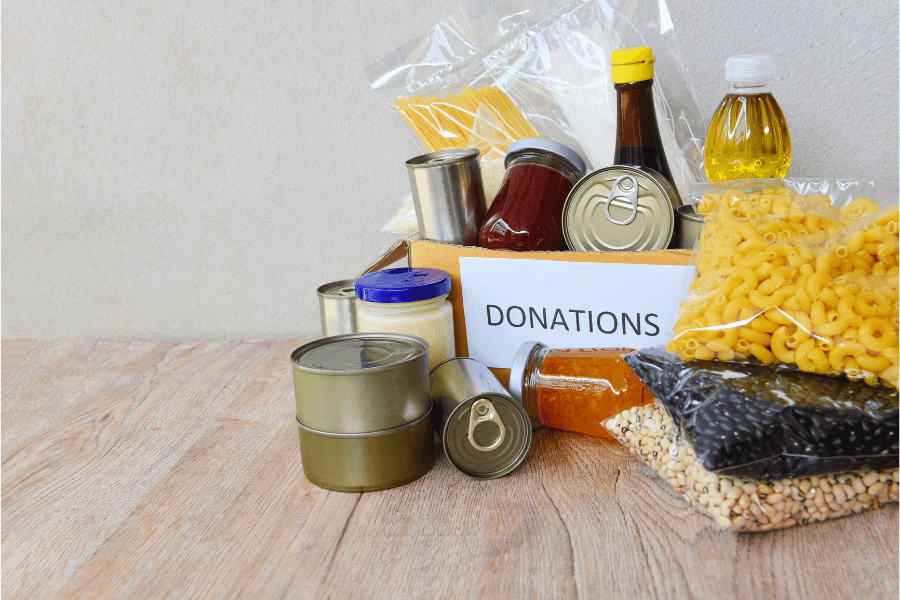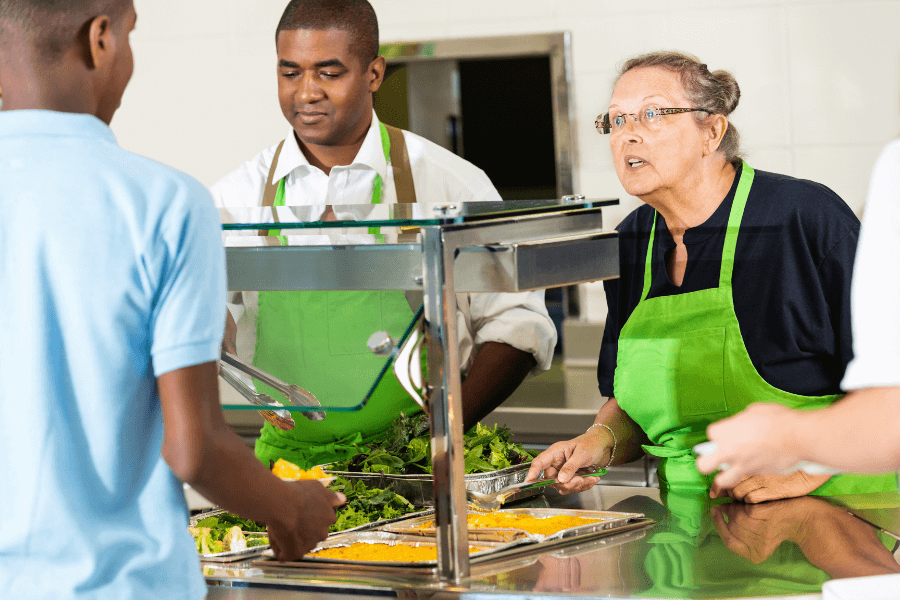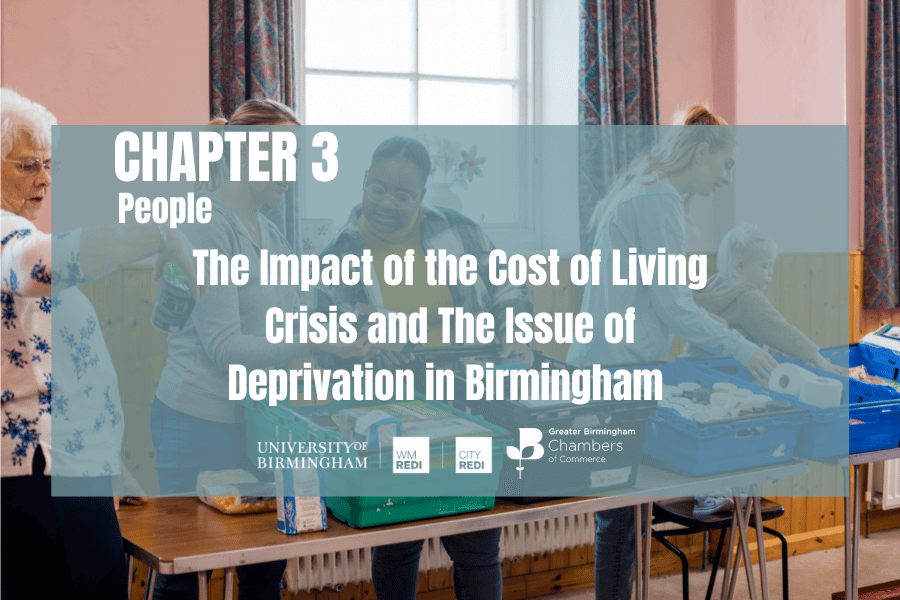Simone Connolly, CEO, FareShare Midlands discusses the impact of the cost of living crisis in Birmingham, with large increases in the numbers of people turning to them for help.
This article was written for the Birmingham Economic Review, published in September 2023.
The review is produced by City-REDI / WMREDI, the University of Birmingham and the Greater Birmingham Chambers of Commerce. It is an in-depth exploration of the economy of England’s second city and a high-quality resource for informing research, policy and investment decisions.
Did you know?
- 96% of FareShare Midlands Charity Members are seeing the effects of the cost of living crisis.
- 70% of Members are seeing more families with children among those new to their services.
- 4.3 million children are living in poverty and food insecurity in the UK.
- 139,000 children are living in poverty in Birmingham.
As the region’s largest food redistribution charity, FareShare Midlands takes good quality surplus food from the food industry and redistributes it to more than 550 Charity Members across the region – local charitable and community organisations that are tackling hunger, poverty and the devastating effects of the cost of living crisis.
Who does FareShare help?
Members include community centres, food pantries, school breakfast and after-school clubs, homelessness charities, faith organisations and food banks. These organisations deliver a wide variety of services to thousands of people from diverse cultural and ethnic backgrounds. Beneficiaries supported include children and adults with disabilities, elderly people, domestic violence survivors, refugees and people struggling with addiction and mental health issues.
“In term-time, we usually have between 15-25 kids come in for a meal. This is a hugely deprived area – there are lots of lots of alcoholism, unemployment and homelessness. Add in the devastating impact of the cost of living crisis and spiralling bills, and you have a very real situation that those children might well go without food if we didn’t support them.” – Paulette, Cape Community Centre

Furthermore, these Members aren’t just feeding people in need; the vital help they provide to their local communities includes training and community support, budgeting and advice on financial awareness, liaison with health visitors and family services, plus providing essentials such as clothing and household items.
“The Pantry has grown a lot in the past few months. We started in June with 10 families and it’s now at 135 families. The rising cost of food, fuel, and loss of income – it’s meant that people continued to really need support. We’ve way outstripped where we thought we’d be, but FareShare is helping us keep up… We get referrals from the nursery and local schools and support single parents from the playgroup. Older people living alone are coming too. People have cried when they come in. It’s a relief. They are very grateful for what we do.” – Karen, King’s Church, The Schofield Centre
Increased Numbers
Since the start of 2023, 69% of Members have seen increases in the number of people turning to them for help. At the same time, they are struggling with the rise in energy bills and everyday costs, as donations and volunteer numbers are falling.
“The biggest thing that hits me is that many of our members are people who are in employment. We have nurses and teaching assistants signed up as members, to name just two professions. Even though they are working as much as possible the soaring cost of living means they are still finding it hard to keep their heads above water and put food on the table”. – Sarah, All Nations Community Grocery.
Simultaneously, FareShare Midlands is experiencing an unprecedented set of circumstances in addition to the cost of living crisis. This year there has been a substantial shortfall in the food supplies redistributed, reflecting the catastrophic food situation – not only in this country but around the world. Ongoing supply chain issues due to the war in Ukraine, high energy costs, poor weather reducing harvests in Europe and North Africa, reduced output from British farmers and the impact of Brexit are all putting additional pressure on the food industry. The supermarkets are having to sell at heavier discounts and reduce the size of their ranges, while manufacturer output is also down.

Any of these issues alone would have an impact, but because they are all happening concurrently is causing a significantly shorter surplus of food to be available for redistribution across the UK. At the same time, the types of surplus food FareShare Midlands is receiving are changing. Food partners are providing more frozen and catering stock, and less of the smaller packaged food items. Combined with a very limited number of charitable organisations that have reverted to cooking meals since COVID-19, there is a considerable challenge to the distribution and use of these types of surpluses within local communities. There is a huge amount of surplus still available to feed people, but it is more difficult to use and requires more resources to turn into meals.
“FareShare Midlands continues to work closely with regional food partners to redistribute as much local surplus as possible. Due to the current situation, we are only able to take on Members who can cook with the food supplied to them or Members who are flexible and creative with the surplus food available.
We welcome many more charities and other organisations to apply if they are cooking meals to feed the people in their local community. FareShare Midlands is now focused on being more efficient and lean, working with our network of Members to ensure that collectively we can continue to support the growing numbers needing help across the region. Together, we are working harder than ever to tackle food waste and fight hunger.” – Simone Connolly, CEO, FareShare Midlands
“Without the [FareShare Midlands] food we wouldn’t operate, we would quite literally fold. A lot of local people aren’t on social media, especially those who are a bit older. So, they wouldn’t have known about our well-being walks or our community garden if they weren’t coming here to get some support with groceries. We wouldn’t have as many volunteers if they didn’t come here to access the food. Without the food, there is no Burntwood Be A Friend at all. There would be a lot more poverty. We wouldn’t be a strong community like we are.” – Steph, Burntwood Be A Friend
FareShare Midlands needs urgent support from businesses and individuals. The organisation needs more nutritious surplus food to share, donations and funds to support our operations, and local people with spare time and a passion for the environment or food to join as volunteers. Visit our website to find out more.
This blog was written by Simone Connolly, CEO, FareShare Midlands.
Disclaimer:
The views expressed in this analysis post are those of the authors and not necessarily those of City-REDI / WMREDI or the University of Birmingham.

